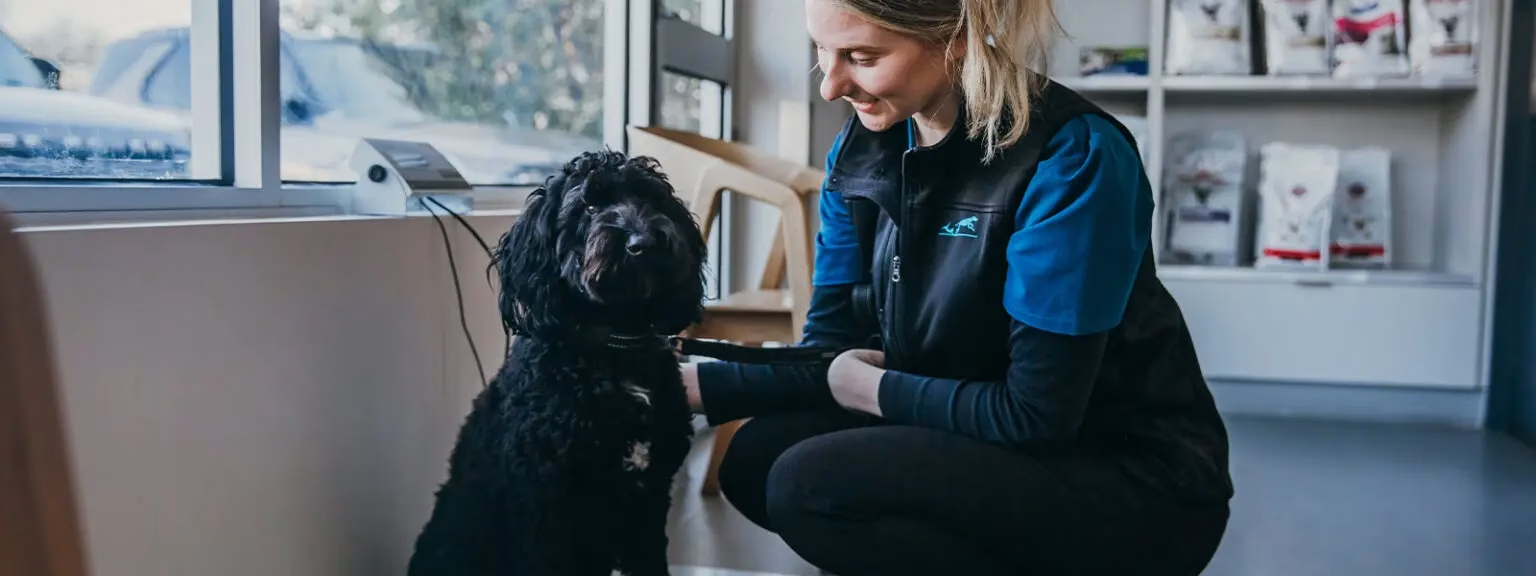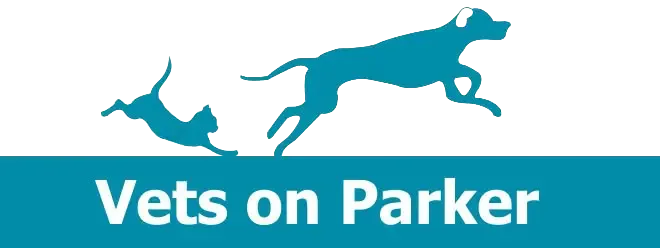Weight Management
Did you know that over 40% of dogs and 30% of cats in Australia are classified as overweight or obese!

Pet obesity is caused by:
- Over feeding
- Not enough exercise
- Too many snacks and treats (in particular human treats)
- Hypothyroidism
Unfortunately, the extra weight that our pets carry can lead to the similar health problems we see in humans and can shorten their life! Common problems caused by obesity are:
- Diabetes
- Osteoarthritis
- Spinal problems
- Cruciate injuries
- Higher anaesthetic risk
- Exercise intolerance
- Heat intolerance
- Skin problems
If you are concerned your pet may be overweight, please speak to one of our friendly team members and organise a time to come in and speak to a vet or vet nurse. We are here to help your pets live longer and happier lives. We promise to provide you with constructive and positive advice to normalise your pet’s weight and improve their overall health.

Top five tips for weight loss in dogs
- Dogs are not that different to us – input must be less than output for weight loss to occur. The easiest way to do this it to simply feed your pet less dry or wet food. Whilst this might sound easy, it can be difficult to remain firm in the face of a pair of pleading puppy dog eyes.
- Vegetables. These are your get out of jail free card. Vegies are a very simple way to bulk up your dog’s diet without giving them extra calories. Removing approximately 1/4 – 1/3 of your dog’s calorie intake and replacing with vegetables will keep them full and the kilograms will drop off!
- Drop the carbs. We have all fallen into this trap – purchasing low fat food and realizing after, that the fat has been replaced with sugar! Pet food is the same. The ideal weight loss food should be low in fat, low in carbs and high in protein and fibre. If you prepare your pet’s food at home – stop the carbs and swap them with vegies.
- Snacks and table scraps. A small amount of cheese for a dog is like a block of cheese for us and a biscuit is equivalent to a pack of biscuits. So please keep this in mind when feeding scraps off your plate. There are some fantastic low fat and tasty alternatives pet treats available these days, please speak to our team about options.
- Meal replacements. Does your dog enjoy a tasty raw bone every now and then? These can be great to tackle boredom and dental disease, however, large treats such as bones are meal replacements and should not be given in addition to a meal. Remember, not all dogs will tolerate bones, both the marrow fat content and the risk of fracturing teeth so speak to your vet for advice.

Top five tips for weight loss in cats
- Cats are not that different to us – input must be less than output for weight loss to occur. The easiest way to do this it to simply feed your cat less. Whilst this might sound straightforward, your cat is likely to put the pressure on once they realise you’re feeding them less.
- Grazing is a recipe for disaster if it is not properly managed. Grazing (eating small amounts of food over the course of the day) is a common behavior amongst cats, but the problem comes when owners continually feed up the bowl with kibble as it drops low over the course of the day. If your cat isn’t good at self regulating their food intake, this overfeeding can lead to weight gain. Avoid this by making sure you measure out the amount your cat will need over the course of day before popping it in the bowl.
- Drop the carbs. Cats are carnivores which means their bodies were not designed to digest carbs. In fact, the high percentage of carbs in cat food is one of the main reasons the incidence of diabetes is increasing in our pet cats! We have all fallen into this trap – purchasing low fat food and realizing after, that the fat has been replaced with sugar! Cat food is the same. The ideal weight loss food should be low in fat, low in carbs but high in protein and fibre.
- Snacks and table scraps. A small amount of cheese for your cat is like a block of cheese for us, a biscuit is equivalent to pack of biscuits. So please keep this in mind when feeding a cat off your plate. There are some fantastic low fat and tasty alternatives available these days.
Need an appointment?
Where your pet’s unwell, or it’s time for a general check-up or vaccination, your furry friend is in good hands. Book online to see our expert Vets on Parker!
Contact Details
Opening Hours
Monday – Friday: 8am – 7pm
Saturday: 8am – 4pm
Sunday: 10:00 am – 12:00pm
What Our Vets on Parker Pet Owners Really Think
EXCELLENTTrustindex verifies that the original source of the review is Google. Good vets. Kind staff. Caring always.Posted onTrustindex verifies that the original source of the review is Google. our 15yo dog has had problems with prostate, for a few years, it was refreshing to finally get a solution to his problem, without an invasive procedurePosted onTrustindex verifies that the original source of the review is Google. Great all round experiencePosted onTrustindex verifies that the original source of the review is Google. Jessie has been visiting the team at VOP since she was 8 weeks old, she is now nearly a 15 yo Labrador. Dr. Kevin and the whole team at reception, other vets and nurses have treated her like a family member. VOP have looked after Jessie during emergency visits and routine appointments and have always been accommodating and patient. Jessie will soon be relocating to another city and unfortunately will not be able to see the team at VOP. Thank you to everyone for looking after her.Posted onTrustindex verifies that the original source of the review is Google. Just wanna appreciate your good and professional services for my cat meow meow even we couldn't have her for a bit more longer.. I have no regret that I brought her to here since she was younger , she had some happy time with all of us .Posted onTrustindex verifies that the original source of the review is Google. Vets on Parker are a wonderful clinic, with even more wonderful staff. A special shout out to Dr. Erica and Dr. Kassy. The whole Vet Nurse Team are kind, caring and knowledgeable. The clinic has offered exceptional support to both of my pet dogs, especially my very senior dog who has since passed. I am so grateful for their innovation and care that they provided during such a difficult time.Posted onTrustindex verifies that the original source of the review is Google. Excellent clinic so kind and caringPosted onTrustindex verifies that the original source of the review is Google. I've been taking my precious dog to this clinic for 16 years and have always left happy and satisfied.

